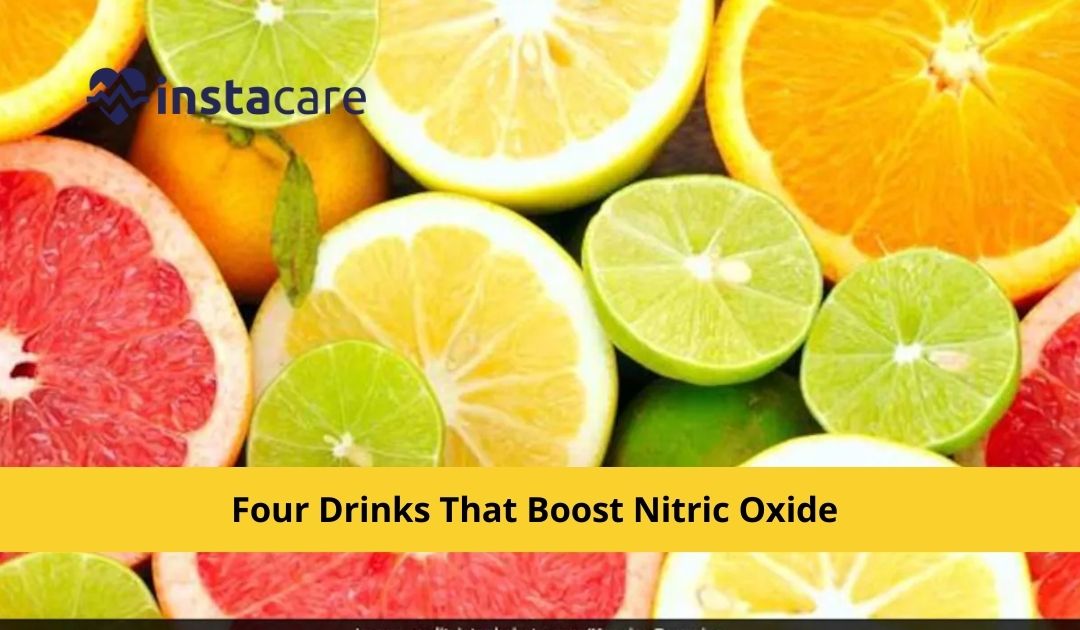Nitric oxide (NO) is
a vital molecule in the human body known for its vasodilatory effects, which
help relax blood vessels and improve blood flow. Proper NO levels are essential
for cardiovascular health, athletic performance, and overall well-being. While
various factors influence NO production, diet plays a crucial role. In this
guide, we'll explore four drinks that can naturally boost nitric oxide levels
and promote better circulation.
Here are 4 Drinks that Boost Nitric Oxide!
1- Beetroot Juice: Nature's NO Booster
Beetroot juice has
gained popularity as a natural performance-enhancing drink. The magic lies in
its high nitrate content. Nitrates are compounds found in various vegetables,
and when consumed, they are converted into nitric oxide within the body.
Beetroot juice, in particular, is a concentrated source of nitrates.
When you consume
beetroot juice, these nitrates are metabolized and lead to an increase in
nitric oxide production. This, in turn, promotes vasodilation, allowing blood
vessels to relax and widen. As a result, more blood can flow through these
dilated vessels, delivering oxygen and nutrients to your muscles more
efficiently.
Athletes and fitness
enthusiasts often turn to beetroot juice as a pre-workout drink to enhance
endurance and reduce fatigue. The improved oxygen delivery to muscles can delay
the onset of fatigue during exercise. Additionally, beetroot juice may have
potential benefits for those with high blood pressure, as it can help regulate
blood pressure by supporting healthy blood vessel function.
2- Pomegranate Juice: A Heart-Healthy Elixir
Pomegranate juice,
with its sweet and tangy flavor, is not only a delightful beverage but also a
heart-healthy elixir. Packed with polyphenol antioxidants, particularly
punicalagins and anthocyanins, pomegranate juice supports nitric oxide
production.
- Research has shown
that regular consumption of pomegranate juice can have a positive impact on
endothelial function, the lining of blood vessels.
- Healthy endothelial
cells are better equipped to produce nitric oxide, which helps maintain the
flexibility of blood vessels and keeps blood pressure within a healthy range.
- Beyond its nitric
oxide-boosting properties, pomegranate juice's potent antioxidants combat
oxidative stress and inflammation, further contributing to overall cardiovascular
health.
- Drinking pomegranate
juice as part of a heart-healthy diet can be a delicious way to support your
vascular system.
View More: 9 Health Benefits of Flax Seeds You Must Know About
3- Green Tea: A Sip of Nitric Oxide
Green tea has a long
history of use in traditional medicine, and modern research has uncovered its
myriad health benefits. Among these benefits is its potential to boost nitric
oxide levels.
- Green tea is rich in
catechins, particularly epigallocatechin gallate (EGCG).
- These catechins have
been found to stimulate nitric oxide production and improve endothelial
function.
- As a result, regular consumption of green tea may help enhance blood vessel health, reduce the risk of atherosclerosis, and maintain optimal blood pressure.
Moreover, green
tea's natural compounds act as potent antioxidants, protecting cells from
damage caused by free radicals. This dual action—boosting nitric oxide and
fighting oxidative stress—makes green tea a versatile drink for promoting
overall well-being.
4- Citrus Fruits and Their Nitrates
While citrus fruits
are not commonly associated with nitric oxide production, they contain a
surprising secret—dietary nitrates. These nitrates, found in fruits like
oranges and grapefruits, can be converted into nitric oxide within the body.
- When you consume
citrus fruits, their nitrates enter the bloodstream and, under the right
conditions, are transformed into nitric oxide.
- This natural process
helps maintain healthy blood pressure levels and supports overall cardiovascular
health.
- Additionally, the
vitamin C content in citrus fruits complements their nitrate content.
- Vitamin C is known to promote nitric oxide production and protect nitric oxide molecules from breaking down, ensuring a sustained vasodilatory effect.
Exercise and Nitric Oxide
- Regular exercise is
a fantastic way to increase nitric oxide in your body. Increasing blood flow
maintains the health of the endothelium cells, which create nitric oxide.
- Thus, consistent
exercise can actually result in higher nitric oxide levels. Try to exercise
three times a week for at least 30 minutes each time.
- Pick an enjoyable
form of exercise so that you will stick with it and look forward to doing it.
For the best results, combine aerobic exercise with strength and resistance
training.
- Joining a neighborhood sports team, enrolling in a dance class, or scheduling weekend hikes are additional ways to increase exercise.
Conclusion
Incorporating nitric oxide-boosting drinks into your daily routine can be a delicious and effective way to support cardiovascular health, enhance athletic performance, and improve overall well-being. Remember to consult with a healthcare professional before making significant dietary changes, especially if you have underlying health conditions or are taking medication.

